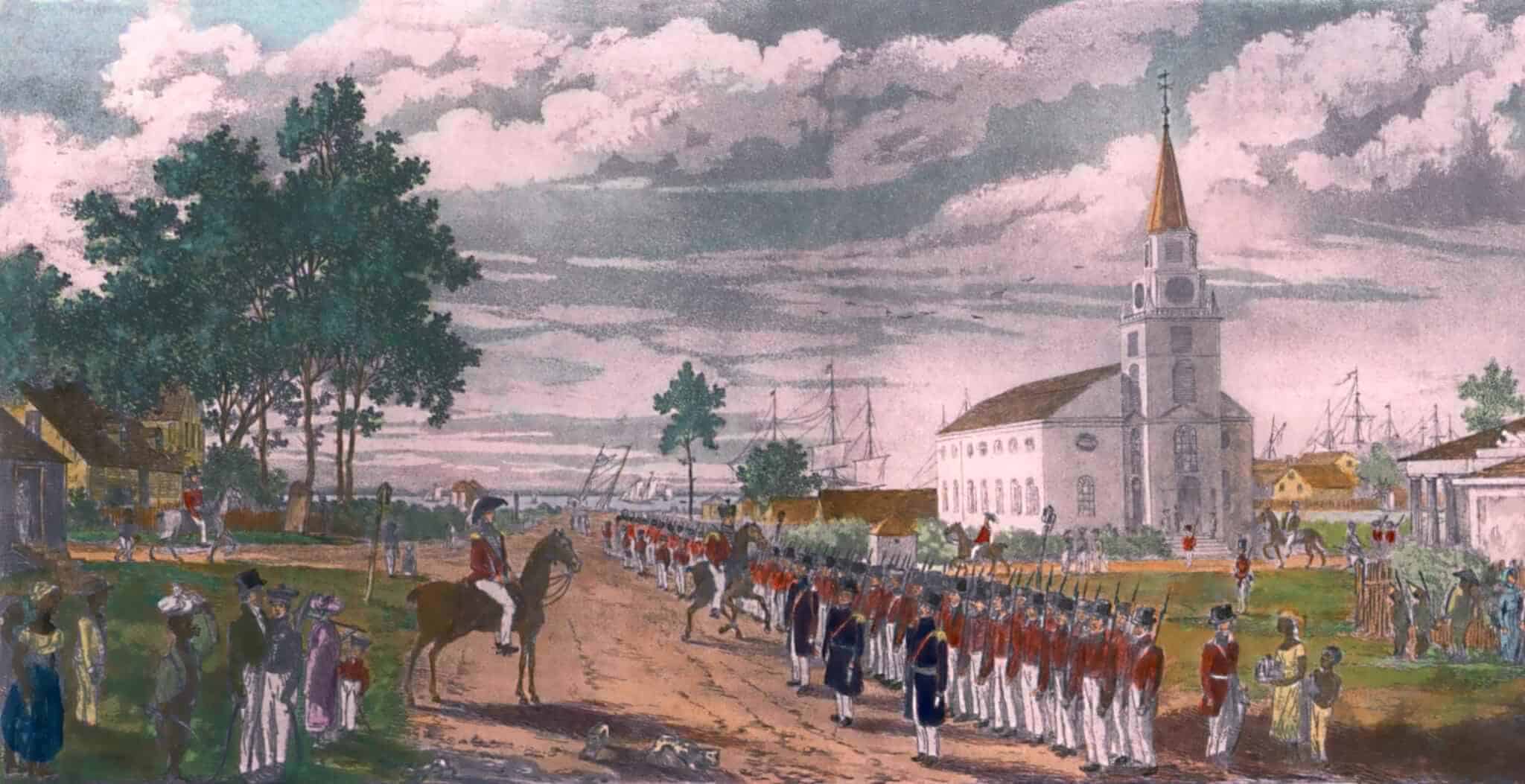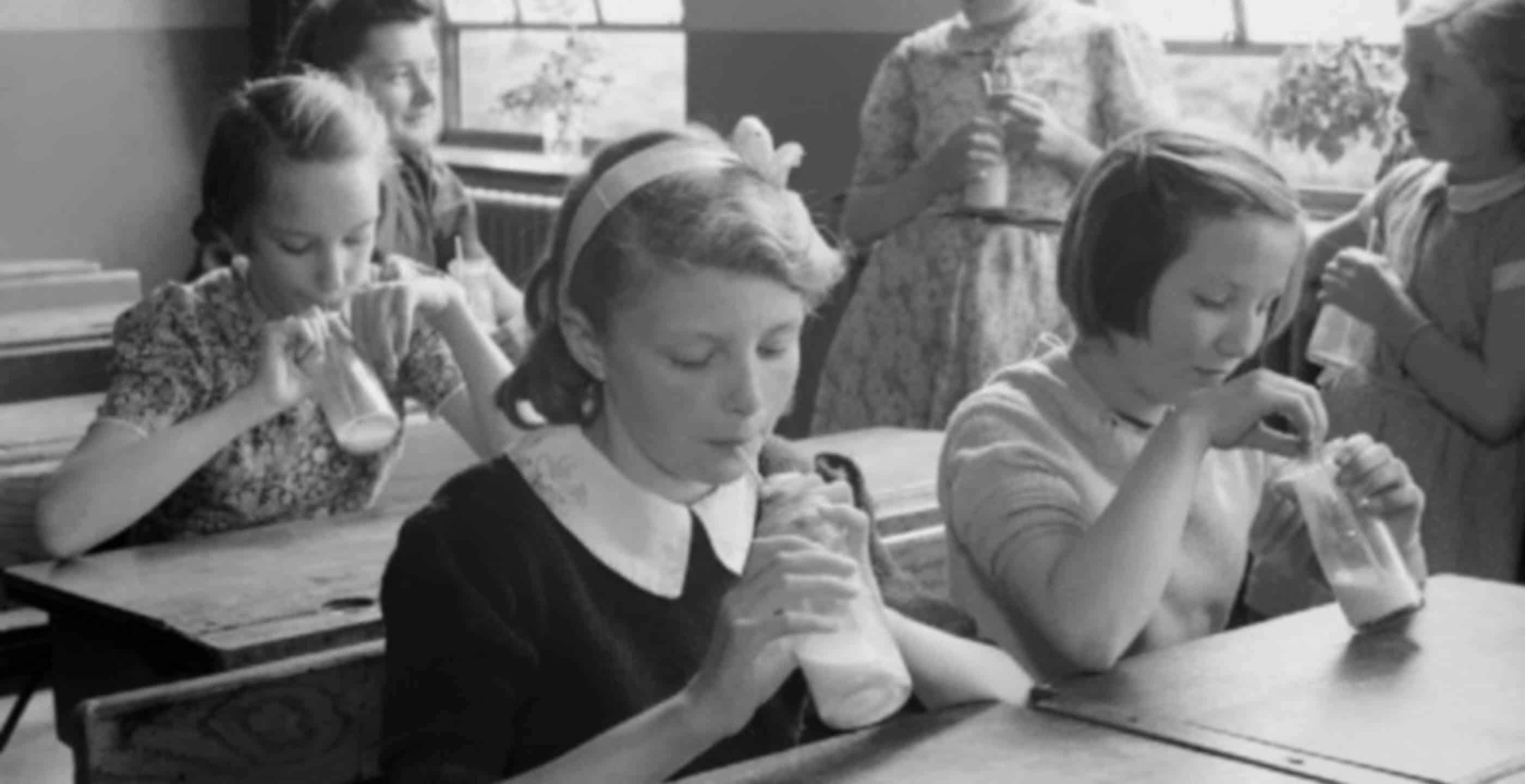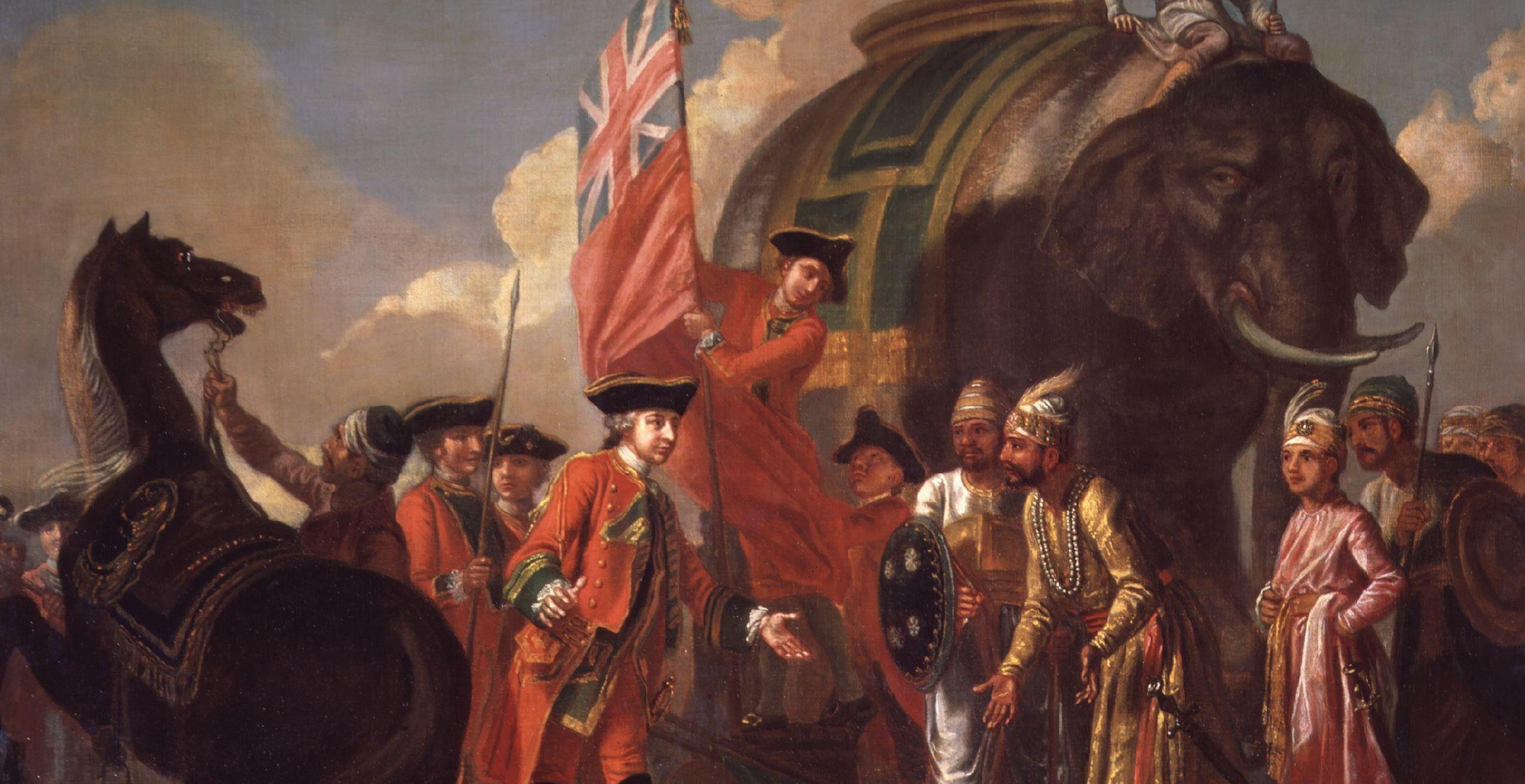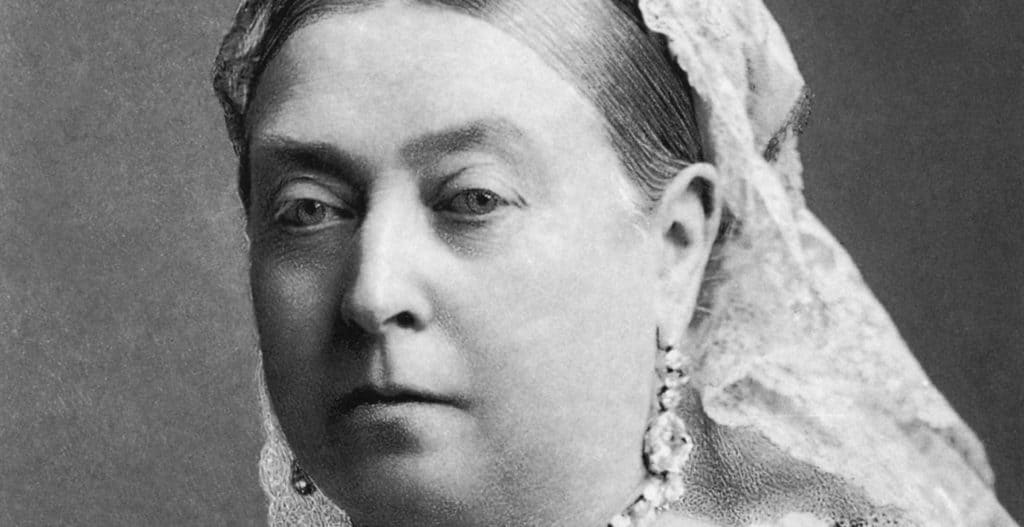The very idea of a day that would …“remind children that they formed part of the British Empire, and that they might think with others in lands across the sea, what it meant to be sons and daughters of such a glorious Empire.”, and that “The strength of the Empire depended upon them, and they must never forget it.”, had been considered as early as 1897. The image of a motherly Queen Victoria, Empress of India, as its paramount ruler would be shared by an Empire spanning almost a quarter of the entire globe.
However it was not until after the death of Queen Victoria, who died on 22 January 1901, that Empire Day was first celebrated. The first ‘Empire Day’ took place on 24th May 1902, the Queen’s birthday. Although not officially recognised as an annual event until 1916, many schools across the British Empire were celebrating it before then. One New Zealand school journal from 1910 records: “This is the ‘Union Jack’; and now that Empire Day has come round once more, you will hear its history. It is really a coloured picture from a history-book, telling of things that happened, long before you were born”’.
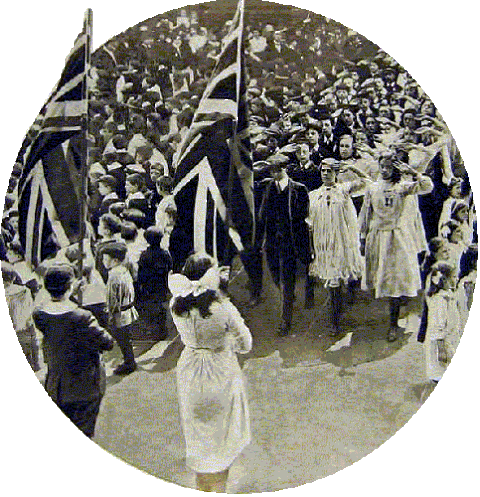
Each Empire Day, millions of school children from all walks of life across the length and breadth of the British Empire would typically salute the union flag and sing patriotic songs like Jerusalem and God Save the Queen. They would hear inspirational speeches and listen to tales of ‘daring do’ from across the Empire, stories that included such heroes as Clive of India, Wolfe of Québec and ‘Chinese Gordon’ of Khartoum. But of course the real highlight of the day for the children was that they were let of school early in order to take part in the thousands of marches, maypole dances, concerts and parties that celebrated the event.
In Britain an Empire Movement was formed, with its goal in the words of its Irish founder Lord Meath, “to promote the systematic training of children in all virtues which conduce to the creation of good citizens.” Those virtues were also clearly spelled out by the watchwords of the Empire Movement “Responsibility, Sympathy, Duty, and Self-sacrifice.”
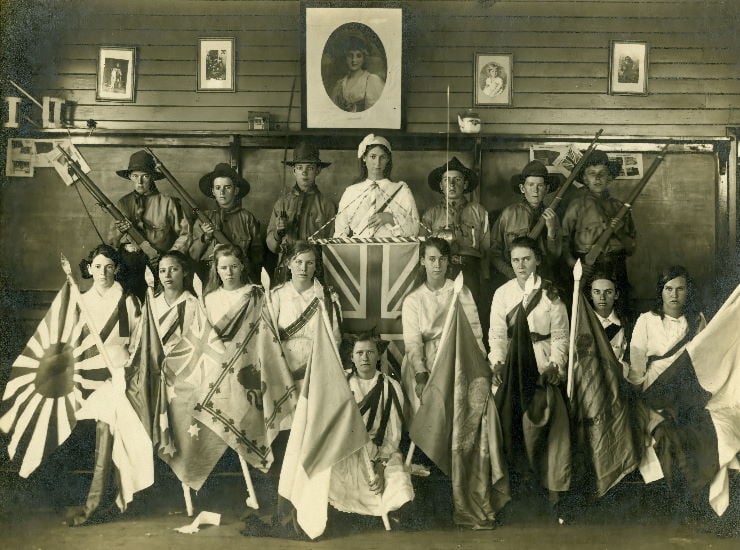 Empire Day Celebrations 1917, Beverley, Western Australia. (photograph courtesy Corinne Fordschmid)
Empire Day Celebrations 1917, Beverley, Western Australia. (photograph courtesy Corinne Fordschmid)
Empire Day remained an essential part of the calendar for more than 50 years, celebrated by countless millions of children and adults alike, an opportunity to demonstrate pride in being part of the British Empire. By the 1950’s however, the Empire had started to decline, and Britain’s relationship with the other countries that formed the Empire had also changed, as they began to celebrate their own identity. Political parties of the far-left and pacifist dissenters had also begun to use Empire Day itself as an opportunity to attack British imperialism.
Political correctness appears to have ‘won the day’ when in 1958 Empire Day was re-badged as British Commonwealth Day, and still later in 1966 when it became known as Commonwealth Day. The date of Commonwealth Day was also changed to 10th June, the official birthday of the present Queen Elizabeth II. The date was again changed in 1977 to the second Monday in March, when each year The Queen still sends a special message to the youth of the Empire via a radio broadcast to all the various countries of the Commonwealth.
A now largely forgotten anniversary, perhaps only your grandparents will recall the chant Remember, Remember Empire Day, the 24th of May.
Only your grandparents and several million loyal Canadians that is, who still celebrate Victoria Day each year on the last Monday before 24th May.
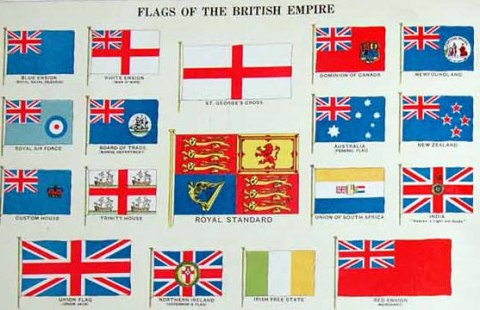
Memories of Empire Day
The above article was originally compiled by Historic UK researchers in 2006. We have however, recently been contacted by Jane Allen, whose memories show how Empire Day was celebrated in Cardiff, Wales:
“I must have been amongst the last children to celebrate this at school. Not sure which year, as I was very young, but it would have been between 1955-57. At infant school in Wales, we were taken out into the playground, and the Union Jack was hoisted, then lowered after we had sung our song:-
Brightly, brightly, sun of spring upon this happy day
Shine upon us as we sing this 24th of May
Shine upon our brothers too,
Far across the ocean blue,
As we raise our song of praise
On this our glorious Empire Day”
And from the other side of the Empire, from Steve Porch in Australia:
“Australian & mid 1950’s. Empire Day (24th of May) was cracker night! Sort of Guy Fawkes Night. So nice that someone else remembers what was such a fun part of life in those years gone by. We had big bonfires, skyrockets, & all the things that are now considered unsafe, but I never got hurt? Empire Day was always something to look forward to as an Australian child.”
And even more recently, in November 2018, we have been contacted by Susan Patricia Lewis, who as five year old in 1937, recalls singing the following song gathered around the Union Flag in the playground of The Avenue Infants School, Wellingborough, Northamptionshire:-
We have come to school this morning
‘Tis the 24th of May and we join in celebrating
What is called our Empire Day.
We are only little children,
But our part we gladly take,
We all want to do our duty
For our King and country’s sake”
Neil Welton also contacted us in November 2020:
“Even though Empire Day ended by 1958, we were still expected to celebrate Commonwealth Day and other Royal occasions at school. Certainly was the case for us at my primary school in the 1980s and, judging by what I’ve read here, these celebrations at my school sound very similar to Empire Day. A moment to remind us as children, in a way we will never forget, that we are a part of something much greater than ourselves to which we owe a duty or a loyalty. Something which has existed long before we were born and which we are invited to be part of and to join. Something so special that even our forefathers were willing to fight and to die for it. The birth of Prince William in 1982 was therefore this moment in which my own generation was invited to join the nation or tribe. A moment in which all were invited to celebrate the birth of a Prince. To mark and to acknowledge that one little baby born to our generation was going to be our King. Indeed after being assembled in our school hall, we all had to stand straight to attention in our rows. We weren’t to fuss or fidget, or turn to a friend for a talk, but to look straight in front of us “as if we were soldiers or statues”. A Union Jack was then carried in by a Standard Four boy and placed on the stage next to a picture of the Queen. Our Headmaster told us how special it was for the Queen that her grandson was going to be our King. How special it was that so many grandchildren should want to celebrate the birth of Her grandson. We then sang patriotic songs and hymns, said some prayers thanking God for his arrival, and also sung God Save The Queen. Before singing the national anthem our Headmaster told us to clear our minds of all our ideas and to just imagine we could see The Queen.”
In March 2022, Charles Liddle shared his memories as follows:
“With regard to Empire Day. During my time at junior school in Northumberland in the 1950’s, each Empire Day some children from the fourth year were chosen to represent the army navy and airforce. In my fourth year I was chosen to represent the army and wore my fathers old battle dress, suitably tailored. The children representing the navy and airforce also wore the uniforms of their represented service.
We then stood in the front at assembly and along with everybody else sang Rule Britannia and the National Anthem before being dismissed for the day with a patriotic message from the headmaster.”
In June 2022, Maurice Geffrey Norman recalled Empire Day celebrations at his primary school in Bedfordshire:
“Between 1931 and 1936, I was a pupil at Arlesey Siding Primary School in Bedfordshire. Every year on 24th May we would celebrate Empire Day. We would be shown a Map of the World covered in red showing the countries of the Empire and be told about them. We would draw the Union Jack and Daisies, representing the Commonwealth. We would sing this little song and then go to the meadows by the river for games followed by a half-day holiday.
What can I do for England,
That does so much for me?
One of her faithful children
I can and I will be.”
